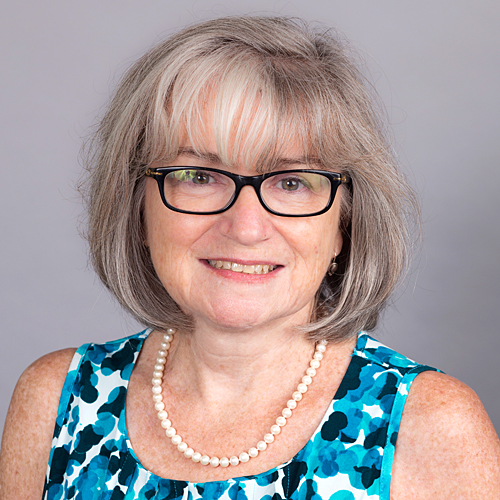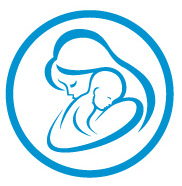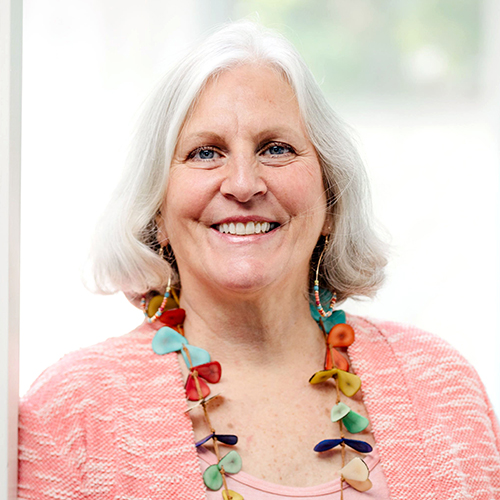 Trauma & Breastfeeding Online Course(s) & Continuing Education
Trauma & Breastfeeding Online Course(s) & Continuing Education
Access the latest clinical skills and research for Trauma & Breastfeeding for Lactation & Breastfeeding professional training. These Trauma & Breastfeeding online courses provide practice-changing skills and valuable perspectives from leading global experts. This Trauma & Breastfeeding education has been accredited for a variety of CEUs / CERPs and can be accessed on-demand, at your own pace.
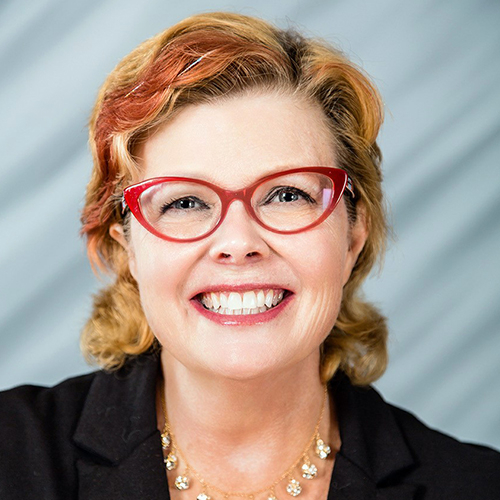
Breastfeeding and Survivors of Adverse Childhood Events

Kathleen Kendall-Tackett is a health psychologist and International Board Certified Lactation Consultant, and the Owner and Editor-in-Chief of Praeclarus Press, a small press specializing in women's health. Dr. Kendall-Tackett is Editor-in-Chief of two peer-reviewed journals: Clinical Lactation and Psychological Trauma. She is Fellow of the American Psychological Association in Health and Trauma Psychology and Past President of the APA Division of Trauma Psychology. Dr. Kendall-Tackett specializes in women's-health research including breastfeeding, depression, trauma, and health psychology, and has won many awards for her work including the 2017 President’s Award for Outstanding Service to the Field of Trauma Psychology from the American Psychological Association’s Division of Trauma Psychology. Dr. Kendall-Tackett has authored more than 460 articles or chapters and is author or editor of 38 books.
Topic: Breastfeeding Helps Mothers Overcome the Legacy of Abuse and Adversity: It Makes All the Difference - [View Abstract]
Topic: Burnout, Compassion Fatigue and Self-Care for Members of the Perinatal Team - [View Abstract]
Topic: Burnout, Secondary Trauma, and Moral Injury in Perinatal Care Providers - [View Abstract]
Topic: Does Breastfeeding Protect Maternal Mental Health? The Role of Oxytocin and Stress - [View Abstract]
Topic: Interplay of Oxytocin and Stress Systems: Impact on Breastfeeding and Mental Health - [View Abstract]
Topic: Lessons to Learn from Fed Is Best: How Can We Improve Our Care? - [View Abstract]
Topic: Mother-Infant Sleep Location: It's Not as Simple as it Seems - [View Abstract]
Topic: Trauma and Breastfeeding: Working Effectively with Trauma Survivors - [View Abstract]
Topic: What’s New in Postpartum Depression? A Summary of Current Findings - [View Abstract]
Can events from childhood influence a woman’s current mothering experience and her health and well-being? Yes, they can, but they don’t have to be the blueprint for the rest of her life. This session provides an overview of the latest research on the effects of Adverse Childhood Experiences; their impact on breastfeeding; how they can affect a woman’s body, mind and spirit; and what she can do to cope.
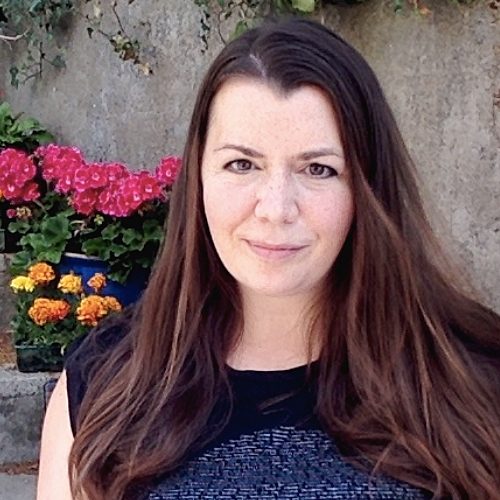
Breastfeeding Trauma: How Can We Recognise and Support Mothers Who Wanted to Breastfeed but Were Unable to Meet Their Goals?

Professor Amy Brown is based in the Department of Public Health, Policy and Social Sciences at Swansea University in the UK. With a background in psychology, she has spent the last thirteen years exploring psychological, cultural and societal influences upon infant feeding decisions in the first year. Her research seeks to understand how we can shift our perception of how babies are fed away from an individual mothering issue to a wider public health problem – with societal level solutions. Dr Brown has published over 60 papers exploring the barriers women face in feeding their baby during the first year. She is a mother to three human children and three book babies: Breastfeeding Uncovered: Who really decides how we feed our babies, Why starting solids matters, and The Positive Breastfeeding Book: Everything you need to feed your baby with confidence. She is a regular blogger, aiming to change the way we think about breastfeeding, mothering and caring for our babies.
Topic: Breastfeeding Trauma: How Can We Recognise and Support Mothers Who Wanted to Breastfeed but Were Unable to Meet Their Goals? - [View Abstract]
Topic: How Can We Better Support Mothers Don’t Meet Their Breastfeeding Goals? - [View Abstract]
Topic: What Do Normal Infant Feeding Patterns Really Look Like? - [View Abstract]
It is recognised that women can experience feelings of guilt, unhappiness and anger when they cannot meet their breastfeeding goals. Breastfeeding difficulties leading to early cessation are a risk factor for postnatal depression. However, research has not previously examined these feelings of loss and distress in relation to clinical models of trauma.
From a research study exploring the experiences of over 3000 women who stopped breastfeeding before they were ready and held negative emotions around this decision, I argue that a subset of these women are displaying symptoms of clinical trauma in relation to their experience. The trauma stems from physical experiences of a difficult breastfeeding experience, but also the loss of a much-desired breastfeeding relationship. The combination of these events leaves the individual traumatised and understandably reactive to the topic of breastfeeding.
Trauma models identify numerous emotions and behaviours that individuals typically display when they have been traumatised by an event. These include recurrent distressing recollections of the events, intense psychological distress at exposure to reminders of the event and efforts to avoid thoughts, feelings or activities that remind one of the event.

View Details / Enroll
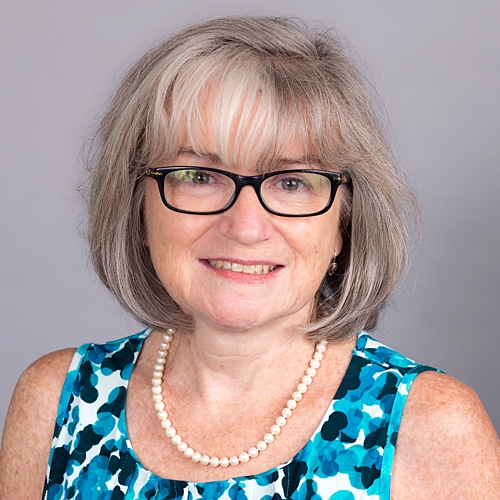

Dr. Hawes provides clinical services in the Neonatal Intensive Care Unit and at the Perinatal and Postpartum Clinic at the Center for Children and Families at Women & Infants Hospital, where she treats women and their partners experiencing perinatal mood and anxiety issues. Treatment includes individual and family psychotherapy. She is an assistant professor (adjunct) in the Department of Pediatrics at The Warren Alpert Medical School of Brown University. She trained in adult psychiatry and mental health at the University of Rhode Island and is board certified in adult psychiatric-mental health advanced practice nursing. Her research, clinical work, and lectures focus on stress and trauma related to the premature birth experience. In addition she studies the relationship between nursing practice and parent and infant outcomes; nurse-patient interaction; the healthcare work environment and provider and patient outcomes; and the epigenetics of stress. (https://vivo.brown.edu/display/khawes).
Classic animal studies have shown that maternal care of rat mothers e.g. licking and grooming and arched back nursing, impacts offspring outcomes such as behavior, development, and stress regulation. These outcomes persist over subsequent generations. Epigenetics, the study of how environmental influences affect gene expression, mediates these effects. In this session we will discuss and explore how similar epigenetic mechanisms in humans possibly relate to the protective effects of breastfeeding and maternal tactile stimulation on infant stress reactivity.
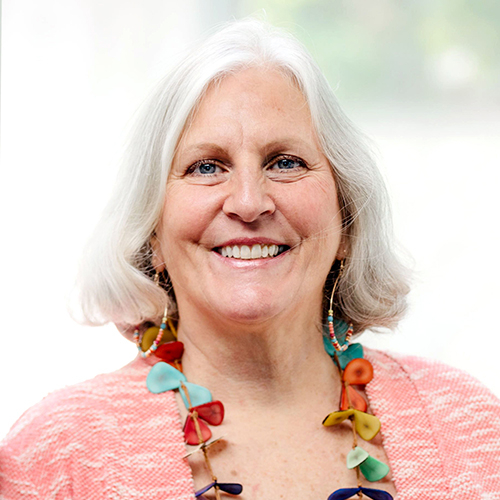

Dr. Hazelbaker has been a therapist in private practice for over 30 years. She specializes in cross-disciplinary treatment and to that end has taken training in several modalities to best assist her clients. She is a certified Craniosacral Therapist, a Lymph Drainage Therapy practitioner, a Tummy Time™ Trainer, a Haller Method practitioner, A Pre and Perinatal Psychology Educator, a Lactation Therapist Diplomate, an International Board Certified Lactation Consultant and a fellow of the International Lactation Consultant Association.
She earned her Master’s Degree from Pacific Oaks College (Human Development specializing in Human Lactation) and her doctorate from The Union Institute and University (Psychology, specializing in Energetic and Transformational healing.)
People recognize her as an expert on infant sucking issues caused by various structural problems like torticollis, plagiocephaly, brachycephaly and tissue shock-trauma. She invented the Hazelbaker™ FingerFeeder and the Infant Breastfeeding CranioSacral Protocol™ to assist in the resolution of this type of infant sucking dysfunction.
Topic: Cranial Nerves: A Critical Component of the Process of Breastfeeding - [View Abstract]
Topic: Creating Flow: Using Lymphatic Drainage Therapy for Breastfeeding Issues - [View Abstract]
Topic: Finger Feeding: What Do We Know? What Should We Know? - [View Abstract]
Topic: Gamechangers: New studies that will change the way we think about tongue-tie - [View Abstract]
Topic: Infant Trauma: Impact on Breastfeeding - [View Abstract]
Topic: The Faux Tie: When is a "Tongue-tie" NOT a Tongue-tie? - [View Abstract]
Topic: The Impact of Bodywork on Infant Breastfeeding - [View Abstract]
Topic: What Does Torticollis Have to do with Breastfeeding? - [View Abstract]


Briana Tillman received her undergraduate degree in International Relations from the United States Military Academy at West Point. She has been a La Leche League Leader for 9 years and is a board certified lactation consultant. After spending 10 years as a stay-at-home mom, she is currently in her third year of medical school at Rocky Vista University College of Osteopathic Medicine in Parker, Colorado. She loves spending time with her husband and three kids—as a family they like to travel, go camping, and play string instruments in “family ensemble.”
Nick is a 3rd year medical student at Rocky Vista University College of Osteopathic Medicine. He has a background in mechanical and systems engineering but found his calling in medicine after volunteering for Health4Haiti in 2011. He lives in Colorado with his wife and they enjoy hiking, camping and fishing in the great outdoors.
Topic: What a Letdown: Exploring the Physiology of the Milk Ejection Reflex - [View Abstract]
Due to the global shortage of mental health professionals, many primary care providers have become the first-line responders to a wide variety of psychiatric concerns. While lactation consultants and breastfeeding support counselors are not called upon to diagnose and treat mental health disorders, they nonetheless often become enmeshed in the topic due to the holistic nature of breastfeeding management. An understanding of the major psychiatric topics that can arise during lactation consultation is therefore a valuable asset.
In this presentation, we will describe mental health benefits and drawbacks of breastfeeding, and explore the controversy surrounding the “breast is best” campaign as it regards maternal mental health. We will also briefly explore the pharmacological and non-pharmacological options in treatment of major psychiatric disorders (e.g. generalized anxiety, major depressive disorder, bipolar mood disorder, schizophrenia) as they relate to lactation. Finally, we will review the scientific literature related to potential long-term mental health effects of breastfeeding on babies.
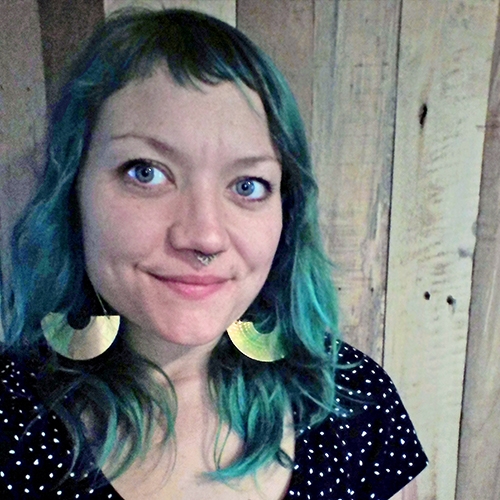

Anna is an IBCLC in Minneapolis, Minnesota. They started their work in the lactation field as a La Leche League Leader in 2015 and achieved board certification in 2018. Her three years with La Leche League included a two-year position as Equity, Diversity, and Inclusion Administrator of LLL of Minnesota and Dakotas. Anna has worked with the Twin Cities' Queer Birth Project and currently serves as IBCLC for St. Paul- Ramsey County WIC and Baby Cafe. She holds a BA in Gender, Women and Sexuality Studies from the University of Minnesota, and works to break down barriers to lactation support and create space in the intersections of gender, sexuality, anti-racism, self healing, social and environmental justice, and natural infant feeding. She has presented for the Breastfeeding and Feminism International Conference, iLactation, La Leche League, the Twin Cities Birth and Baby Expo, and the Minnesota Department of Health. Anna holds down a homestead where she raises two kids and a bunch of animals and makes art. Find her at annabrauchlactationsupport.weebly.com.
In this session, I will explore how trauma held in the body interferes with the breast/chestfeeding experience on a physiological level, including how experiences of trauma, stress, and conflict contribute to stress hormones, as well as on an emotional level, preventing the bonding between parent and child that facilitates a fulfilling breast/chestfeeding relationship. I will share techniques for supporting parents with past trauma using interdisciplinary approaches that promote self-care and healing of trauma that include talk therapy, bodywork, use of herbs and other holistic and traditional approaches such as acupuncture, potential Western medicine/pharmaceutical support, peer support, lactation professional support, and family support, and how to integrate trauma-informed care into their lactation practice. We will discuss the role of gender dysphoria during breast/chestfeeding for trans and gender non-conforming parents and delve into the available research on techniques that queer, trans and gender non-conforming parents use to combat gender dysphoria, including hormone therapy, gender-affirming surgery, and chest binding, and the compatibility of those techniques with lactation.
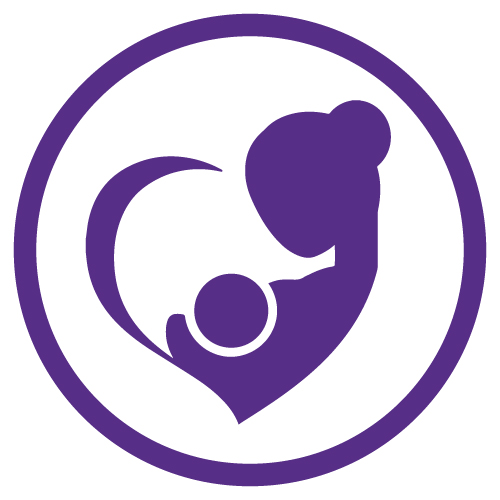
View Details / Enroll

Supporting Parents Through Grief After the Loss of the Breast/Chestfeeding Relationship

Laurie-Anne Muldoon has supported families both as an RN and as a Social Worker in a variety of hospital, public health and community mental health settings in the U.S. and Canada for the last 25 years. She has felt privileged to have companioned many women, families and groups through their experiences of loss, upheaval and life transitions. Her passion for perinatal mental health was reignited following her own birthing and breastfeeding experiences with her son 11 years ago. Laurie-Anne brings her compassion and respect for human dignity to her work with parents transitioning into the world of parenthood. She is founder of The Ottawa Integrative Mental Health Collective. A proud Franco-Ontarian, Laurie-Anne was born and raised in Ottawa Ontario. She currently works in private practice specializing in perinatal mental health, birth trauma and loss.
For many mothers/lactating parents, their reasons for deciding to breast/chestfeed are often grounded in an effort to do what’s best for themselves and their child. Unfortunately, the reality is that on the road to trying to be the best parent they can be, breast/chestfeeding doesn’t always work out in the way that parents had hoped. In fact, sometimes it doesn’t work out at all. This loss can be deeply felt by a parent for a long time.
This presentation will explore what is at the heart of breast/chestfeeding grief and what distinguishes it from other types of grief. Lactation providers will also learn about several socio-cultural factors that amplify grief after the loss of the breast/chestfeeding relationship. Additionally, attendees will learn about some of the emerging data related to how the pandemic has impacted this type of grief. And lastly, we will take a closer look at how to respond more effectively to clients who are experiencing the loss of a breast/chestfeeding relationship with their child.

View Details / Enroll
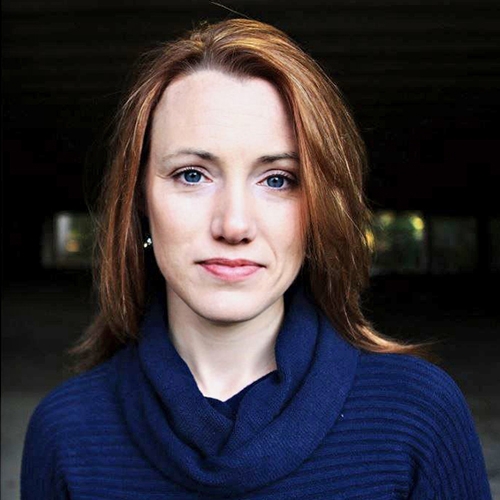
Survivor Mothers' Speak: Child Sexual Abuse Impacts Breastfeeding Experiences

Emily Taylor is nationally recognized for leading hospital transformations to advance health, happiness and equity in communities impacted by structural oppression.
As Founder and Director of WISE (Women-Inspired Systems’ Enrichment), Emily currently leads Perinatal Care Quality Improvement Collaboratives throughout the United States. The collaboratives feature equity and social justice, action-oriented knowledge and skill-building, community engagement, and advanced leadership development.
Emily serves as Chair of the United States Breastfeeding Committee – a coalition of more than 100 organizations that collaboratively drive efforts for policy and practices that create a landscape of breastfeeding support across the United States.
Prior to founding WISE, Emily was Deputy Director of the Carolina Global Breastfeeding Institute. There, she directed the National Collaborative for Advancing the Ten Steps and other collaborative programs. She also conducted myriad research studies resulting in publication on influence of infant formula marketing, implementation of the Baby-Friendly Hospital Initiative, access to donor human milk in the United States, child sexual abuse survivors’ experiences with breastfeeding, and organizational readiness to change.
Emily is currently pursuing her doctorate in Public Health Leadership at the University of North Carolina at Chapel Hill, the same school from which she earned her Master of Public Health from in 2007. She completed the Institute for Healthcare Improvement’s Improvement Advisor Professional Development Program in 2012, and Tamarack Institute’s “Champions for Change: Leading a Backbone Organization for Collective Impact” in 2013.
Her experience as a certified childbirth doula and Lamaze educator and her identity as a woman, feminist, sister, advocate, and equity accomplice continue to inform her work.
One in four girls in the United States report having been sexually abused before their eighteenth birthday. This session will explore how this experience impacts breastfeeding and how lactation supporters can play a positive role in both healing and feeding. A small amount of time will be dedicated to understanding the scope of child sexual abuse in the US. Participants will benefit from hearing lessons gleaned from contemporary peer-reviewed literature that explores the relationship between the surviving child sexual abuse and breastfeeding. The majority of time will be spent hearing from the experts themselves: mothers talking about how their experiences of child sexual abuse impacts their experiences with breastfeeding. Participants will gain insight to the vulnerability and resilience that exists within this large group. The session will end with recommendations for how to provide lactation support that respects and enhances parents’ opportunities to gain power, self-possession, softness and inter-generational healing.

View Details / Enroll
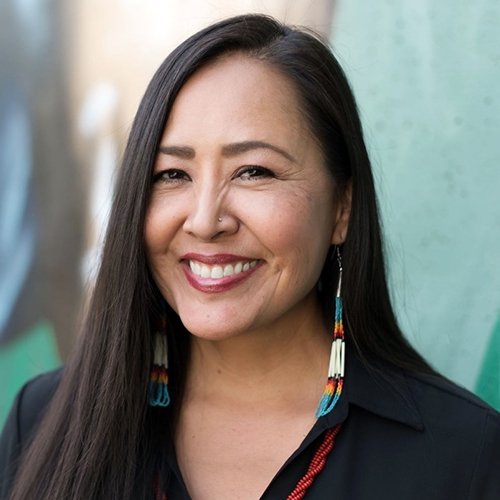
The Power of Story Telling: A Tool for Addressing Historical Trauma and Breastfeeding

Kim is born for Naakaii Diné (Mexican People) and from Tsi’naajinii (Black Streak People) clans. Born in Tuba City, maternally from Tolani Lake, AZ located in the southwestern area of the Navajo Nation. Growing up on and off the Navajo Nation, and residing in various tribal communities throughout her life, Kim is passionate about utilizing her education and experience to promote healthy living through kinship values.
Kim is a International Board Certified Lactation Consultant and has over 10 years of experience in peer-counseling, clinical and educational lactation. Kim’s work has been inclusive of Tribal and culturally diverse communities serving the needs of prenatal, newborns, and post-partum mothers and families. She is a Co-Instructor for the Indigenous Breastfeeding Counselor training course providing cultural breastfeeding and clinical education to those that can serve their community throughout Turtle Island. She also independently consults with Changing Woman Initiative out of New Mexico, a free access birth center serving Indigenous women to reproductive wellness. She is serving her second term on the United States Breastfeeding Committee Board of Directors. Currently, Kim continues to work at Valley Wise Health Medical Center as a Hospital lactation consultant for eight years and is serving the front lines assisting families and COVID mothers during the pandemic with breastfeeding and hospital policies. She also implemented the first Arizona Lactation Mentorship Pilot Program at Valleywise Hospital mentoring two student interns. This allows access to clinical hours to create strategic initiatives to bring BIPOC diversity, equity and inclusion to the field of lactation.
Currently a member of the Advisory Council Committee for the Navajo Nation Breastfeeding Coalition; she will the Urban Dine’ Community Representative for the Phoenix area. This new role will include breastfeeding home visits and telehealth lactation support serving the urban and telehealth rural BIPOC community. She recently collaborated with Wellness Within Reach also providing breastfeeding education and one on one breastfeeding support. Kim's extensive experience in this field has led to opportunities in consulting, which along with her husband synthesized their consulting business in Tribal Indemnity. Within three years, Tribal Indemnity has assumed responsibility of complex projects and strategic planning with one of the largest Tribes in Arizona. She recently established her own small business, Indigenous Breastfeeding Az, dba.
Kim enjoys spending time with her husband of twenty-three years and three daughters of whom she breastfed until they were 2 years old. She also loves early morning runs, hiking, boxing and yoga.
Native people are natural story tellers. This method of knowledge exchange has been around for thousands of years. Story telling is a fundamental tool that has been used to pass down information, share ideas and a teaching opportunity within Indigenous communities. It allows understanding of lived experiences and consequences to sustain and restore balance for many generations. An important component of lactation counseling is we can learn from an Indigenous lens from listening to one’s story when addressing breastfeeding families.

View Details / Enroll

Trauma and Breastfeeding: Working Effectively with Trauma Survivors

Kathleen Kendall-Tackett is a health psychologist and International Board Certified Lactation Consultant, and the Owner and Editor-in-Chief of Praeclarus Press, a small press specializing in women's health. Dr. Kendall-Tackett is Editor-in-Chief of two peer-reviewed journals: Clinical Lactation and Psychological Trauma. She is Fellow of the American Psychological Association in Health and Trauma Psychology and Past President of the APA Division of Trauma Psychology. Dr. Kendall-Tackett specializes in women's-health research including breastfeeding, depression, trauma, and health psychology, and has won many awards for her work including the 2017 President’s Award for Outstanding Service to the Field of Trauma Psychology from the American Psychological Association’s Division of Trauma Psychology. Dr. Kendall-Tackett has authored more than 460 articles or chapters and is author or editor of 38 books.
Topic: Breastfeeding Helps Mothers Overcome the Legacy of Abuse and Adversity: It Makes All the Difference - [View Abstract]
Topic: Burnout, Compassion Fatigue and Self-Care for Members of the Perinatal Team - [View Abstract]
Topic: Burnout, Secondary Trauma, and Moral Injury in Perinatal Care Providers - [View Abstract]
Topic: Does Breastfeeding Protect Maternal Mental Health? The Role of Oxytocin and Stress - [View Abstract]
Topic: Interplay of Oxytocin and Stress Systems: Impact on Breastfeeding and Mental Health - [View Abstract]
Topic: Lessons to Learn from Fed Is Best: How Can We Improve Our Care? - [View Abstract]
Topic: Mother-Infant Sleep Location: It's Not as Simple as it Seems - [View Abstract]
Topic: Trauma and Breastfeeding: Working Effectively with Trauma Survivors - [View Abstract]
Topic: What’s New in Postpartum Depression? A Summary of Current Findings - [View Abstract]
Trauma affects at least one third of childbearing women. Although a common experience, many breastfeeding counselors do not feel confident in working with trauma survivors. Should they ask about it? How do you stay within your scope of practice? This session will provide an overview of the types of trauma women are most likely to experience (childhood abuse, birth trauma, sexual assault, partner violence, natural disaster, and combat), and provide strategies for working effectively and comfortably with trauma survivors. This session also provides an overview of research showing that breastfeeding actually helps trauma survivors cope and lessens the risk of intergenerational trauma.







